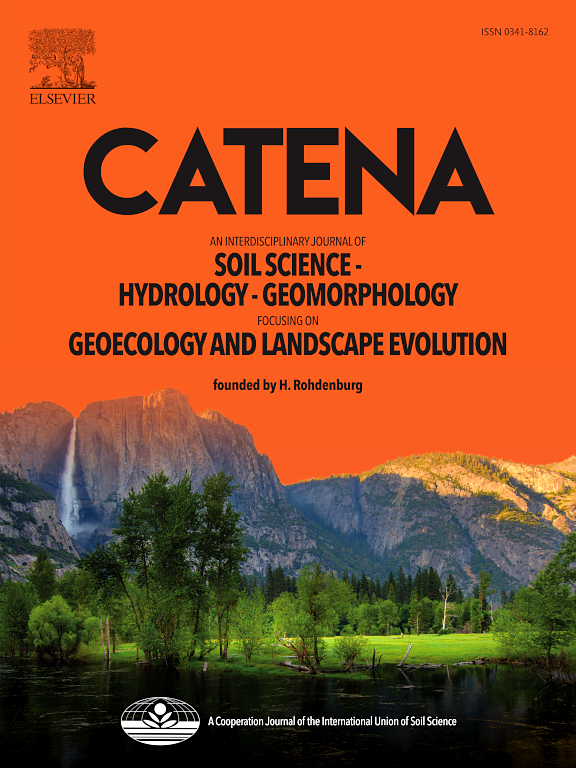Soil organic carbon formation from plant and microbial residual carbon: Effects of home-field advantage and root litter quality
IF 5.4
1区 农林科学
Q1 GEOSCIENCES, MULTIDISCIPLINARY
引用次数: 0
Abstract
Home-Field Advantage (HFA) hypothesis states that microorganisms specialized in decomposing local litter result in faster in situ decomposition compared to ex situ, enhancing soil organic carbon (SOC) formation in situ soils. Short-term litter decomposition (e.g., < 3 years) typically exhibits the HFA effect. However, it remains unclear whether long-term (e.g., > 5 years) microbial adaptation to substrates in situ or ex situ leads to a loss of HFA and how this impacts SOC accumulation from plant and microbial sources. To address this issue, we conducted a 7-year in situ and ex situ decomposition experiment using three typical root litters with different quality: Stipa bungeana (C/N = 81.7), Thymus mongolicus (C/N = 56.6), and Artemisia sacrorum (C/N = 43.2). Our findings challenge the conventional perspective by showing that HFA declines over time, likely due to long-term microbial adaptation to ex situ soil. This suggests that microorganisms can eventually acclimate to new environments, thereby reducing initial advantages observed in situ. Despite this, a pre-existing strong HFA accelerated root litter decomposition and SOC formation, increasing SOC by 19.9–152.7 % under in situ. This acceleration was primarily due to enhanced in situ microbial “in vivo turnover,” as evidenced by significant increases in fungal necromass C (294.6–312.1 %) and extracellular polymeric substances protein (EPS-protein, 4.8–92.1 %). Conversely, plant residual C contributed more to SOC in ex situ (14.3–17.8 %) than in situ (2.5–9.0 %), indicating stronger physical migration of plant residual in ex situ. Low-quality litter facilitated fungal residual C, EPS-protein, and SOC accumulation both in situ and ex situ, suggesting its suitability for biomass synthesis and microbial residual pool formation. This study clarifies the weakening of the HFA over time and the significant contribution of low-quality litter in increasing SOC. This study elucidates the mechanisms by which root decomposition enhances SOC accumulation, highlighting the critical role of HFA in root litter decomposition dynamics.

求助全文
约1分钟内获得全文
求助全文
来源期刊

Catena
环境科学-地球科学综合
CiteScore
10.50
自引率
9.70%
发文量
816
审稿时长
54 days
期刊介绍:
Catena publishes papers describing original field and laboratory investigations and reviews on geoecology and landscape evolution with emphasis on interdisciplinary aspects of soil science, hydrology and geomorphology. It aims to disseminate new knowledge and foster better understanding of the physical environment, of evolutionary sequences that have resulted in past and current landscapes, and of the natural processes that are likely to determine the fate of our terrestrial environment.
Papers within any one of the above topics are welcome provided they are of sufficiently wide interest and relevance.
 求助内容:
求助内容: 应助结果提醒方式:
应助结果提醒方式:


